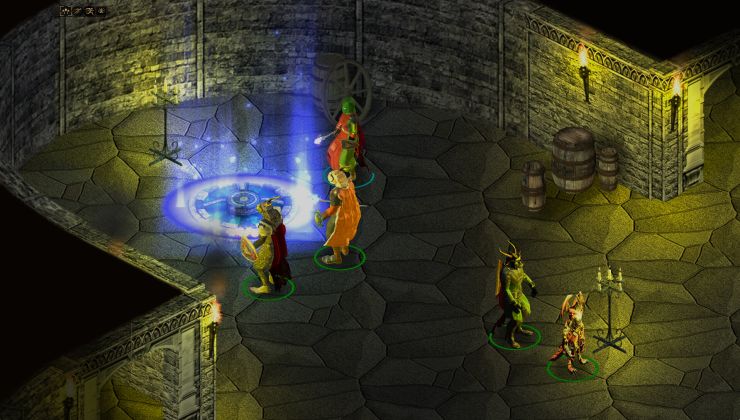How do you know Linux is gaining steam outside of the usual circles? When you see writers like Jason Evangelho from Forbes switching over to Linux and writing about his experience.
He's been writing about Linux since early July, his reasoning for trying out Linux I'm sure will sound familiar to anyone who has used Windows often:
A few weeks ago during a time-sensitive 350GB file transfer, Windows 10 rebooted without warning. When the OS restarted I was greeted with an infuriating blue screen that had become all too familiar. No, not that infuriating blue screen. The one that declares "Working On Updates." It was, as they say, the last straw. After two decades of relying on Windows I finally decided it was time for the nuclear option.
He continues on to talk a little about his experience, including Linux Mint having an off day not finding a drive to install on. However, that didn't stop him, whereas I'm sure other writers would have then gone off on a rant he simply picked a different distribution (Ubuntu). Usually, when I see such writers on major news websites writing about Linux, it ends up coming across as a pretty disappointing read as if they've set themselves up not to like it. So it was incredibly refreshing to see him have a little patience to push through it. It's the same for anything that's new to you, if you're not prepared to learn a little—you will probably fail.
The latest article, titled Gaming On Linux: 2 Ridiculous Myths And 2 Brutal Truths, features yours truly after we had a bit of a chat. We went over the usual points, most of which will be well-known to our regular readers and people who've been using Linux for a long time. Still, some of it felt important to actually get across to a wider audience. This is why I appreciate Evangelho's writing, because he reached out to people in the community for feedback and help. To make sure he actually understood various upsides and downsides of using Linux for work and play. Although, it's slightly amusing how I mentioned Wine a little and then along comes Valve with Steam Play.
It's really fantastic to see more people on major websites actually try Linux for themselves and have a positive experience. More like this please.
Quoting: tuubiIf you want to run proprietary software, surely it's better to do it on a platform you trust? This is not math and two negatives do not make a positive.It is indeed better, and the reason why I use Windows for most of my gaming is because I play with friends, and three out of four of the games we play the most are not available natively for Linux, and four out of four have minor to large performance issues with Linux. One of them I can't even get to run at all any more. I don't buy single player titles not available for Linux, but my friends are more important to me than what software I run, and I'm honest about that.
I'm not one to preach free software or anything else really, but I don't see how your views are more pragmatic than the ones you condemn. Convenient for you maybe, but that's hardly the same thing.
What I was trying to say is that if you truly value Free Software, you would not run proprietary games. Even if you only care about whether the source is open or not, be careful when berating others for their choice of closed source software because that veers awfully close to hypocrisy. There's obviously big privacy issues with Windows which are much smaller with games, but privacy and closed source don't really mix too well in general.
It's not a black and white thing, but I see and hear an awful lot of people who are very adamant that Free and/or Open Source software is very important. But then they happily buy proprietary games and even spend an awful lot of time making them run better on Linux, while barely giving any thought or help to games which are Free Software, that thing they supposedly care so much about.
There are not a lot of good Free Software games, but if people showed even remotely the amount of support that proprietary games get to those that exist, guess what, there would be more and better games available under Free and/or Open Source licenses. But it's become clear to me that a lot of the Linux community is not very consistent. Free and Open Source only matters to some, while a good bunch are just posers.
Wow, I have become a bit of a bitter old geezer, haven't I. I guess getting disillusioned does that.
Last edited by Arthur on 6 September 2018 at 12:56 pm UTC
Quoting: EikeCan you please elaborate on how far is it? (with some - at least generic - examples...)Quoting: ChronariusYou can remove Visual Studio from that list!
https://code.visualstudio.com/Download
Visual Studio Code is very far from Visual Studio.
Thanks.
Last edited by Boldos on 6 September 2018 at 1:21 pm UTC
Quoting: ArthurBut it's become clear to me that a lot of the Linux community is not very consistent. Free and Open Source only matters to some, while a good bunch are just posers.Is it a bad thing that not everyone in the Linux community is a hardcore activist, that some are just looking for a more respectful system than Windows and Mac OS or simply can't afford proprietary software and rely on FLOSS to have access to computing?
You said it yourself: it's not all black and white. To me open source matters when it comes to things like science, knowledge, and basic functionality like Internet browsing or text processing. I really can't care less about reverse-engineering my music, movies or games and changing the way they work, since they're meant to be distributed and used as a specific experience. Am I a poser for not going full Stallman? If so I don't give a damn, these are my opinions, choices and preferences and I'm not trying to conform to anyone's model of who deserves free software.
Of course there's also the issue of trust and privacy, but frankly it's not like I go and monitor the source code of every piece of free software I use anyway. I see privacy as a losing battle -- every part of the network/system is potentially compromised by corporations, governments as well as individuals -- and if I wanted to win it at all costs I'd probably stop using computers altogether and start growing vegetables in the woods. That doesn't mean I can't make the better choice where it's convenient and sensible to do so.
Quoting: BoldosCan you please elaborate on how far is it? (with some - at least generic - examples...)
Visual Studio Code is basically an editor with loads of plugins (which as far as I know come from lots of different sources). The base as well as the plugins I tried the last months were getting frequent updates, some stable, some not so much. In my humble opinion, the plugins (ab)using parts of the interface make its usage incoherent. It's a quick and dirty tool for hacking something together. Again, IMHO.
Visual Studio is a professional software development environment. Its not without flaws, of course, but it is the stable tool I need for big team projects. And it would be my tool of preference for C++ programming under Linux, if it would let me.
I'm probably biased. I prefer the stable stuff, and I'm using (and getting used to) Visual Studio for at least 20 years now.
Last edited by Eike on 7 September 2018 at 8:51 am UTC
Quoting: SalvatosWell, it would certainly be a good thing if everyone who used a computer was a firm believer in Free Software, and Open Source ruled the computing universe. :DQuoting: ArthurBut it's become clear to me that a lot of the Linux community is not very consistent. Free and Open Source only matters to some, while a good bunch are just posers.Is it a bad thing that not everyone in the Linux community is a hardcore activist, that some are just looking for a more respectful system than Windows and Mac OS or simply can't afford proprietary software and rely on FLOSS to have access to computing?
But, well, life is what it is, eh? Maybe after the revolution comes. :D
Quoting: SalvatosIs it a bad thing that not everyone in the Linux community is a hardcore activist, that some are just looking for a more respectful system than Windows and Mac OS or simply can't afford proprietary software and rely on FLOSS to have access to computing?No it is absolutely not a bad thing, and you seem to be honest about your stances. The problem I have is with loud advocates of Free and/or Open Source software who don't practice what they preach.
You said it yourself: it's not all black and white. To me open source matters when it comes to things like science, knowledge, and basic functionality like Internet browsing or text processing. I really can't care less about reverse-engineering my music, movies or games and changing the way they work, since they're meant to be distributed and used as a specific experience. Am I a poser for not going full Stallman? If so I don't give a damn, these are my opinions, choices and preferences and I'm not trying to conform to anyone's model of who deserves free software.
Of course there's also the issue of trust and privacy, but frankly it's not like I go and monitor the source code of every piece of free software I use anyway. I see privacy as a losing battle -- every part of the network/system is potentially compromised by corporations, governments as well as individuals -- and if I wanted to win it at all costs I'd probably stop using computers altogether and start growing vegetables in the woods. That doesn't mean I can't make the better choice where it's convenient and sensible to do so.
Quoting: EikeQuoting: Boldosan you please elaborate on how far is it? (with some - at least generic - examples...)
Visual Studio Code is basically an editor with loads of plugins (which as far as I know come from lots of different sources). The base as well as the plugins I tried the last months were getting frequent updates, some stable, some not so much. In my humble opinion, the plugins (ab)using parts of the interface make its usage incoherent. It's a quick and dirty tool for hacking something together. Again, IMHO.
Visual Studio is a professional software development environment. Its not without flaws, of course, but it is the stable tool I need for big team projects. And it would be my tool of preference for C++ programming under Linux, if it would let me.
I'm probably biased. I prefer the stable stuff, and I'm using (and getting used to) Visual Studio for at least 20 years now.
In addition this info: Visual Studio Code is an Electron application and quite similar to Atom (Text Editor), whereas Visual Studio is a full blown IDE much like e.g. IntelliJ.
Last edited by jens on 7 September 2018 at 6:59 am UTC
Quoting: SalvatosAm I a poser for not going full Stallman? If so I don't give a damn, these are my opinions, choices and preferences and I'm not trying to conform to anyone's model of who deserves free software.Even Stallman does not conform to the "full Stallman" strawman:
Quoting: Richard StallmanHowever, if you're going to use these games, you're better off using them on GNU/Linux rather than on Microsoft Windows. At least you avoid the harm to your freedom that Windows would do. Thus, in direct practical terms, this development can do both harm and good. It might encourage GNU/Linux users to install these games, and it might encourage users of the games to replace Windows with GNU/Linux. My guess is that the direct good effect will be bigger than the direct harm.https://www.gnu.org/philosophy/nonfree-games.en.html
Quoting: HamishIf I remember right, Stallman also considers the art, story, dialogue, voice acting and so forth in games to be somewhat different from the code itself in its copyright & freedom implications, and that because of the importance of that kind of thing to games they need to be considered a bit differently from most software. So while I'm sure he would support opening the code of games, and absolutely would consider that game engines ought all to be Free software, he would not necessarily oppose relatively normal copyright restrictions on the creative assets in games.Quoting: SalvatosAm I a poser for not going full Stallman? If so I don't give a damn, these are my opinions, choices and preferences and I'm not trying to conform to anyone's model of who deserves free software.Even Stallman does not conform to the "full Stallman" strawman:
Quoting: Richard StallmanHowever, if you're going to use these games, you're better off using them on GNU/Linux rather than on Microsoft Windows. At least you avoid the harm to your freedom that Windows would do. Thus, in direct practical terms, this development can do both harm and good. It might encourage GNU/Linux users to install these games, and it might encourage users of the games to replace Windows with GNU/Linux. My guess is that the direct good effect will be bigger than the direct harm.https://www.gnu.org/philosophy/nonfree-games.en.html
Stallman considers code to be rather like recipes in its ability to be shared and improved. So if you publish a recipe book, he would say your pie recipe should be shareable and maybe someone else would change it to have a bit less sugar or a dab of ginger or something. But he wouldn't say the picture in the recipe book of you making the pie, should be shareable. Game art assets and such are like that.










See more from me